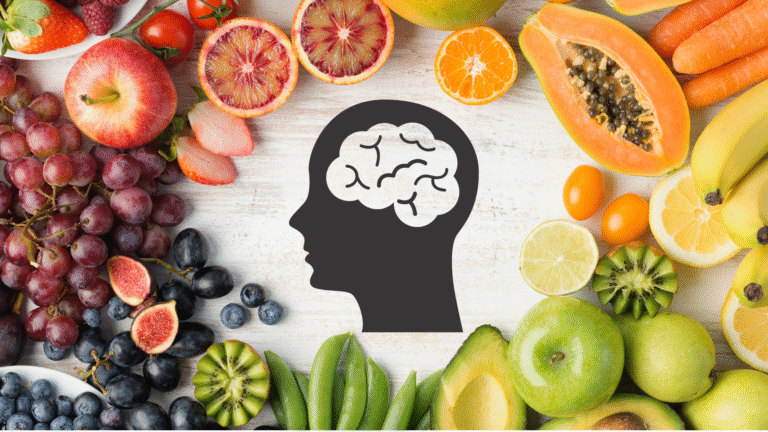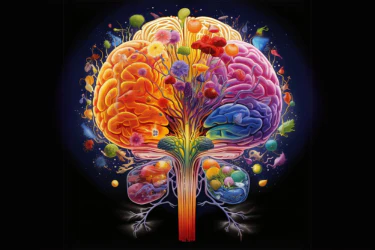Debunking Diet Fads: What You Really Need to Know for Better Health
In the world of health and wellness, diet fads often emerge promising quick fixes and dramatic results. From low-carb and high-fat to detox cleanses and juice fasts, the internet is filled with trendy diets that claim to provide a magical solution to weight loss and overall well-being. While some of these diets may lead to short-term results, many are not sustainable or scientifically backed, and they can even harm your health. In this article, we’ll explore some of the most popular diet fads, debunk common myths, and provide evidence-based advice to help you achieve better health without falling for misleading trends.
1. The Keto Diet: Extreme Carbohydrate Restriction
What is it?
The ketogenic diet (Keto) is a low-carb, high-fat diet designed to shift the body’s metabolism into a state of ketosis, where it burns fat for energy instead of carbohydrates. This diet involves severely restricting carbohydrates to about 5-10% of your daily intake, while increasing fat consumption to 70-80%.
Why It’s a Fad:
While the Keto diet may lead to rapid weight loss, particularly in the initial stages, it is highly restrictive and difficult to maintain in the long term. Eliminating entire food groups, such as fruits, vegetables, and whole grains, can lead to nutrient deficiencies, digestive issues, and increased risk of heart disease due to high saturated fat intake. Additionally, the body is forced to burn fat instead of carbs, which can cause muscle loss and slow metabolism over time.
The Truth:
Sustainable weight loss and health benefits are best achieved through balanced, nutrient-dense meals that include a variety of whole foods. Rather than relying on extreme restriction, focus on creating a sustainable eating pattern that promotes long-term health and includes lean proteins, healthy fats, and plenty of fiber-rich fruits and vegetables. Consulting with a healthcare professional before making significant dietary changes is always a wise decision.
2. Juice Cleanses: Detoxing Your Body
What is it?
Juice cleanses involve consuming only fruit and vegetable juices for a set period of time (usually several days). Proponents of juice cleanses claim that they help detoxify the body, eliminate toxins, and promote weight loss.
Why It’s a Fad:
Juice cleanses are overly restrictive and often lack the protein, healthy fats, and fiber your body needs to function optimally. While fruits and vegetables are healthy, drinking only juice can cause blood sugar spikes, nutrient imbalances, and digestive distress due to the lack of fiber. The idea of “detoxing” through a juice cleanse is misleading; your body already has highly effective detoxification systems in place (the liver, kidneys, and intestines) that don’t need help from fad diets.
The Truth:
Your body is naturally equipped to detoxify itself. Instead of restrictive juice cleanses, focus on a balanced diet that includes plenty of whole, fiber-rich fruits and vegetables, lean proteins, and healthy fats. Hydration through water and herbal teas, along with regular exercise, will naturally support your body’s detox processes. Long-term health comes from sustainable, balanced nutrition, not short-term juice fasts.
3. The Paleo Diet: Eating Like a Caveman
What is it?
The paleo diet encourages eating foods that our ancient ancestors would have consumed, such as meats, fish, vegetables, fruits, nuts, and seeds. It eliminates processed foods, grains, legumes, dairy, and refined sugars.
Why It’s a Fad:
While the paleo diet promotes whole foods and eliminates processed foods, it also cuts out nutrient-dense food groups, such as legumes, whole grains, and dairy, which provide essential vitamins, minerals, and fiber. The diet’s emphasis on animal protein can also increase your intake of saturated fats, potentially raising cholesterol levels and increasing the risk of heart disease over time.
The Truth:
A balanced diet that includes a variety of food groups is the key to optimal health. Rather than focusing on restrictive diets, aim for a diet rich in whole grains, fruits, vegetables, lean proteins, and healthy fats. The Mediterranean diet, for example, is a scientifically backed eating pattern that emphasizes plant-based foods, healthy fats, and lean proteins, supporting heart health and longevity.
4. Intermittent Fasting: Skipping Meals for Weight Loss
What is it?
Intermittent fasting (IF) involves cycling between periods of eating and fasting. Common patterns include fasting for 16 hours and eating during an 8-hour window (16:8) or fasting for 24 hours once or twice a week.
Why It’s a Fad:
While intermittent fasting may offer short-term weight loss results, it’s not a one-size-fits-all approach. For some people, fasting may lead to overeating during eating windows, slowed metabolism, or increased stress on the body. IF can also negatively impact those with underlying health conditions, such as diabetes or low blood sugar. Additionally, focusing solely on the timing of meals rather than the quality of food can result in poor nutritional intake.
The Truth:
The key to sustainable weight loss is not meal timing but rather consistent, balanced eating. Instead of fasting, focus on healthy portion sizes, regular meals, and nutrient-dense foods. If intermittent fasting works for you and supports your lifestyle, it can be effective, but it’s important to listen to your body’s needs and consult with a healthcare provider to ensure it’s safe for you.
5. The Alkaline Diet: Balancing pH Levels in Your Body
What is it?
The alkaline diet is based on the idea that eating acidic foods (like meat, dairy, and processed foods) will make your body more acidic, leading to disease. Advocates suggest eating more alkaline-forming foods like fruits, vegetables, and certain grains to restore balance.
Why It’s a Fad:
Your body already regulates pH levels through natural processes, particularly in the kidneys and lungs. The idea that food can dramatically alter the body’s pH levels is misleading and not supported by scientific evidence. The alkaline diet’s emphasis on eliminating entire food groups, such as dairy and meat, can result in nutrient deficiencies and an unbalanced diet.
The Truth:
A healthy diet is based on a balance of nutrient-rich foods, including a variety of fruits, vegetables, whole grains, and lean proteins. Rather than focusing on pH balance, aim for a diet that promotes overall health by supporting your body’s natural processes. Eating a wide range of whole foods will naturally provide the necessary nutrients without resorting to restrictive diets.
Conclusion
Diet fads often promise quick fixes or magical solutions to weight loss and better health, but many lack scientific evidence and can even harm your body in the long run. Sustainable health and wellness come from balanced, nutrient-dense eating patterns that are sustainable and enjoyable. Instead of falling for the latest trend, focus on creating a healthy, long-term relationship with food by prioritizing whole foods, maintaining portion control, and staying active. Remember, there is no “one-size-fits-all” diet; the key to success lies in adopting a personalized approach to nutrition that works for your body and lifestyle. Always consult with a healthcare professional or registered dietitian before making major dietary changes.



